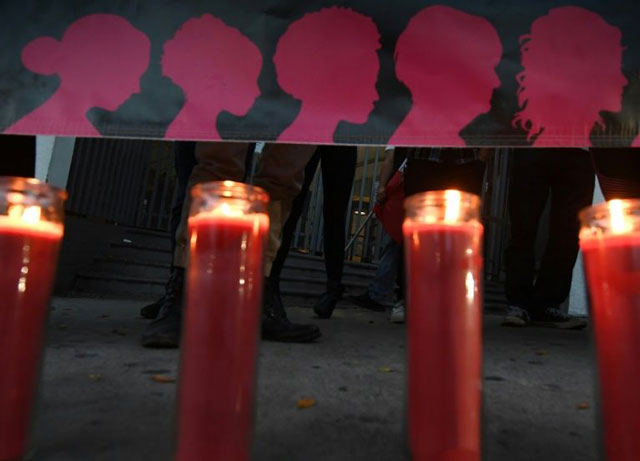
Tunis, Tunisia | AFP | Viral images of a Tunisian lawmaker allegedly masturbating outside a high school have sparked the country’s own #MeToo moment, with sex abuse victims breaking taboos under the hashtag #EnaZeda.
Discussion of sexual harassment had previously been limited to a few edgy TV shows, but now thousands of women in the North African nation are sharing their experiences from lecherous remarks to paedophilia.
A video showing the moustachioed politician sitting in a car with his trousers dropped to his knees was shot last month by a student who shared it online alongside accusations of harassment.
The newly elected lawmaker denies inappropriate conduct and has said he was urinating due to a medical condition — even threatening his accuser when pursued by prosecutors.
#EnaZeda — Tunisian Arabic for #MeToo — was inspired by the huge global movement that bloomed in 2017 in the wake of sexual assault allegations by multiple women against Hollywood mogul Harvey Weinstein.
It has given some in Tunisia the confidence to confront their harassers face-to-face.
“Tonight, I have cried all the tears from my body. Tonight, I was harassed and nobody took the trouble to react,” wrote one internet user Lina Kaboudi.
But “unlike all the other nights, I dared to respond to the perpetrator. I did not keep walking, pretending I had not heard.
“I stopped, and I held him to account”.
– Breaking taboos –
Tunisia is considered a pioneer on women’s rights in the Arab world and was the first predominantly Muslim country to abolish polygamy in 1956.
But the taboo on confronting sexual misconduct remains strong, especially within the family.
It is rare for victims to pursue formal complaints, despite sexual harassment in public places being punishable by a one-year prison term and a fine of 3,000 dinar (around 1,000 euros) since July 2017.
To catalogue the avalanche of testimony, Tunisian activists have set up private Facebook groups including one simply named #EnaZeda, which has more than 20,000 members.
Poignant accounts, some anonymous, are shared daily in the group — ranging from rape and incest to inappropriate behaviour by teachers or celebrities and molestation on public transport.
Activists say they have been surprised by the volume and variety of the stories, and NGO Aswat Nissa (Voice of Women) says it has collected more than 70,000 testimonies.
“At first, we created a group to defend the young girl who filmed the lawmaker, because she had suffered a lot of criticism and pressure,” said Myriam Bouattour, who heads Aswat Nissa.
“Then women, and sometimes men too, shared their stories, so now we are trying to organise workshops with psychologists.”
Bouattour said she has received messages from parents who have “broken the family taboo by talking about sexual harassment with their children, after reading testimonies about paedophilia”.
– ‘Didn’t lift a finger’ –
Traditional attitudes and apathy among some in power mean the nascent #EnaZeda initiative faces an uphill battle.
Kaboudi — the woman who called out street harassment — laments the passivity of the police, who “were a few feet away” and did not “lift a little finger” to help her when she was harassed.
She also despairs of witnesses who similarly “did nothing”.
In an attempt to break the silence, in October the Centre for Research, Study, Documentation and Information on Women (Credif) launched an awareness campaign about sexual harassment on public transport.
Dubbed “the harasser #MaYerkebch (does not ride) with us”, the initiative includes an app that uses a chat bot to speak to a harasser on behalf of a victim of witness and remind them of the law.
Najla Allani, director of Credif, told AFP the app states out loud the type of sexual misdemeanour and location, in a voice that speaks firmly in local dialect to “intimidate and scare the harasser”.
“People dare not speak (themselves) out of fear, but with this voice app, they will be better able to react”, Allani said.
An evaluation of the experimental initiative later this month will decide if it continues, so long as “the financial means allow it”, she added.
It remains to be seen how big a contribution #EnaZeda will make to Tunisia’s battle against sexual harassment, but one thing is sure — the shroud of silence is no longer so suffocating.
 The Independent Uganda: You get the Truth we Pay the Price
The Independent Uganda: You get the Truth we Pay the Price





